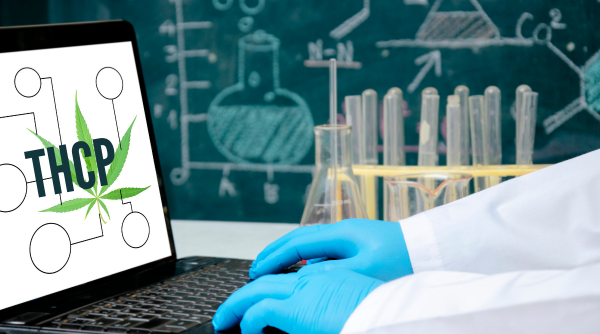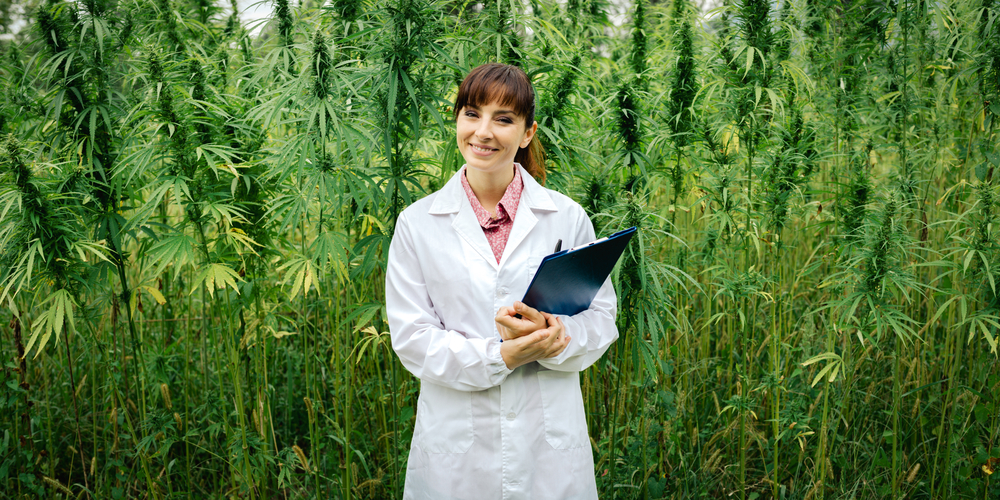
Many people know THC very well, but have you heard of THCp? And some people have been using CBD (cannabidiol) for wellness for years. When you think of cannabis, you probably visualize two types of cannabinoids; tetrahydrocannabinol (THC) and cannabidiol (CBD). But did you know that they are only two of about 150 different known cannabinoids found in cannabis plants?
Researchers isolated CBD and THC more than forty years ago. But as technology has continued to advance, it is now possible to analyze cannabis like never before. And the motivation to understand the function of all cannabinoids is health-related. If CBD and THC can provide medicinal benefits, what impact can the other 148 types of cannabinoids have on our health?
At the end of the year in 2019, 9-tetrahydrocannabiphoral (THCp) was discovered. And it has generated a lot of research and evaluation. Some studies have found THCp can be up to thirty (30) times more potent than tetrahydrocannabinol (THC).
Many are interested in THCp because preliminary studies say that it is much stronger than THC. And that has everyone from medical patients to recreational users, big pharma, and processors interested too because it packs a much bigger punch than conventional THC.
For diseases and symptoms where cannabis can provide relief, could THCp be a ‘less is more’ opportunity? Could patients with chronic pain or terminal illnesses benefit from the high-potency cannabinoid? There are a few other reasons why THCp has generated an intense (conversational) buzz.

When it comes to discovering THCp, we can thank a group of researchers at the Military Chemical Pharmaceutical Institute in Florence, Italy. They were conducting deep research and the cultivar of cannabis plants. Cultivar is isolating the unique psychoactive and physical properties of any kind of plant.
It is a complex biological study. It’s also the reason why there are over 700 unique strains that are cataloged worldwide. We now understand that different strains are good for unique aches and pains, anxiety, and other mental health disorders. And some hybrid strains can be very effective at reducing inflammation at the cellular level. Patients may find that one or two strains work better to help manage symptoms.
So, while the researchers in Florence were elbows deep in the cannabis genome, they came across something really interesting on December 30, 2019. Two interesting things, in fact. They discovered Cannabidiphorol (CBDp) and Tetrahydrocannabiphoral (THCp). Researchers had already isolated minor cannabinoids like CBC, CBDN, THCA, and CBDA, but THCp and CBDp were unique. Both types of cannabinoids scored higher on bioavailability and potency than other cannabinoids.
It was kind of like finding a shark in a fishbowl for the Italian researchers. And it took their research in an entirely different direction. They synthesized THCp and CBDp and experimented to see if both the new cannabinoids would be produced naturally in cannabis Sativa plants. The researchers discovered that THCp binds more easily to cannabinoid receptors, much like Delta-9 THC.
Both cannabidiol and THC, under the microscope, have a structural part that resembles a fitting on a hose. You know when you look inside the female end of a garden hose, and you see rings that help create a firm connection? Cannabinoids are a lot like that in structure too. And the number of rings that a cannabinoid has, the better it connects to cannabinoid receptors in the human body.
Molecules come in different sizes and shapes. And they are made to bind or fit with certain receptors. What researchers found is that THCp fits better with the CB1 cannabinoid receptor. The more carbons a molecule has, the better the fit. And the stronger or more potent the effects of the cannabinoid become.
At the atomic level, THCp has a seven-atom side alkyl side chain. Tetrahydrocannabinol (THC) has fewer, with a side chain consisting of five atoms. While researchers are still studying THCp, they speculate that more side-chain atoms create enhanced bioavailability. Or basically, the more atoms a cannabinoid has, the easier it binds to human cannabinoid receptors. That also means a stronger psychoactive and physical effect when THCp is ingested.
That is a lot of science. The bottom line is that the cannabinoid receptors in the human body like longer molecular structures. And THCp beats THC hands-down in that category. And scientists have solved why less THCp is more. It reacts faster and sustains the psychoactive and physical effects longer too.
But those same reasons may also create a higher addiction risk with THCp. Because it binds so well with CB1 receptors, THCp may also create stronger side effects.

From a medical perspective, there are always concerns about the long-term health effects of using cannabis daily. There just isn’t enough information to know for sure because research into cannabinoids has been historically prohibited. But some studies have already suggested that large quantities of high-potency cannabis could correlate to mental health impairments. It may not be good for your brain to ingest a lot of higher potency cannabis products over the long term.
So, what researchers are interested in, is isolating another cannabinoid that could be used medicinally. Something that works better, faster, and stronger than standard THC. A cannabinoid that patients could use less of in terms of quantity but get better symptom relief.
Patients experiencing painful symptoms or those hospice care for other terminal illnesses could benefit from THCp. Including treatment for conditions like:
Long-term side-effects would be less of a consideration while providing relief, and compassionate care may be more effective with more potent cannabinoids.
Featured Image: (Deposit Photos)
No Information on MarijuanaDoctors.Com should be used to diagnose, treat, prevent or cure any disease or condition. You can view our Full Disclaimer here.